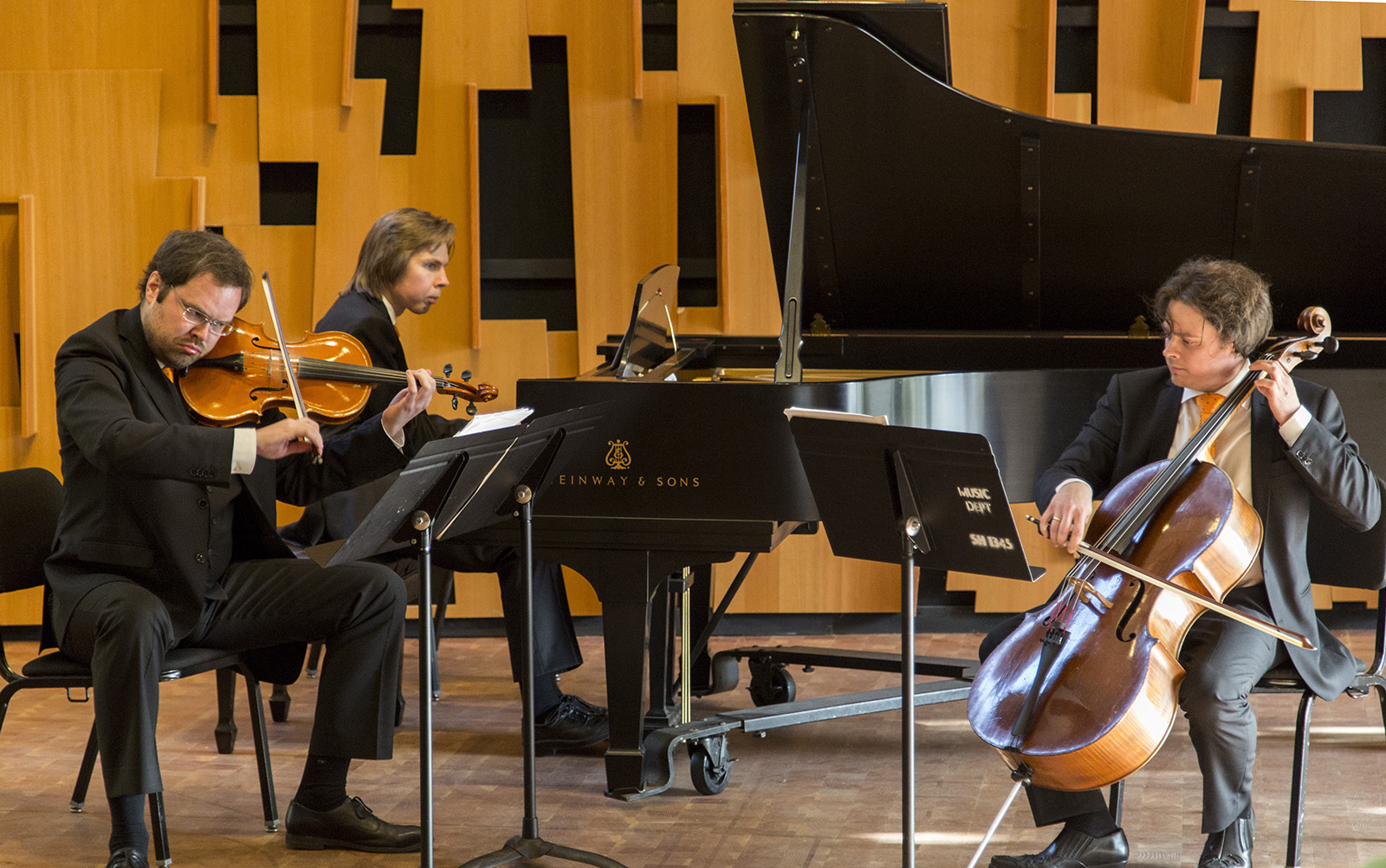Chamber group debuts professor’s composition influenced by Persian poetry

(Owen Emerson/Daily Bruin senior staff)
By Shreya Aiyar
March 27, 2016 12:39 p.m.
David Lefkowitz found the long and storied history of the Jewish people in the plaintive sounds of the Persian ney and oud.
In their dispersion from their religious center of Jerusalem, the Jewish people searched for over 2500 years for a place to once again call home. Lefkowitz heard in the flute-like ney, the stringed oud and in the words of the 13th-century Sufi poet Rumi, a similar pain of separation and of losing a sense of home.
Lefkowitz, a music composition and theory professor, composed a contemporary piece called “Ruminations” to examine the music surrounding the pain of separation. The piece premiered Sunday in a performance by the Sibelius Piano Trio, a chamber group from Helsinki, Finland, which tours internationally.
Lefkowitz received the commission to compose the piece about a year ago, when the trio asked Bob Attiyeh, the producer and recording engineer for the record label Yarlung Records, to request a piece from Lefkowitz.
After accepting the commission, Lefkowitz began reworking an earlier piece, “On the Pain of Separation,” he composed for a 2013 chamber music festival at UCLA.
“On the Pain of Separation” took inspiration from the sounds of the oud and ney and was inspired by four verses composed by Rumi. Hearing the oud and ney made Lefkowitz think of klezmer music, the melodies of his Eastern European Jewish background that accompany weddings and traditional occasions he attended as a child.
In “Ruminations,” he reworked the original instrumentation of ney, oud, flute, clarinet, violin, cello and piano to a more focused score for violin, cello and piano. The sounds of the ney and oud were transcribed to fit the ranges of the violin, cello and piano, and from “On the Pain of Separation” – a blend of klezmer music and the sounds of the ney and oud – “Ruminations” was created.
“It’s homesickness for a life that is irrecoverable,” Lefkowitz said.
To Petteri Iivonen, the Sibelius Piano Trio violinist, the melodies reminded him of his time studying music in Tel Aviv and of a nostalgia for memories of Arab and Palestinian neighborhoods.
Chamber groups do not use a conductor, so the members must rely on each other for cues. While learning the piece, Iivonen said the trio ran into problems coordinating with each other and mastering the complex contemporary rhythms.
The trio also had no reference point as to how the music was supposed to sound, particularly because “Ruminations” had never been performed or recorded before.
Iivonen, however, found learning “Ruminations” easier because of his friendship with Lefkowitz and his prior experiences performing his pieces. Iivonen said he chose to lead the trio in rehearsals because the style of “Ruminations,” the way Lefkowitz grouped fast passages and notes, was familiar to him even though the piece was brand-new.
“It was just a very, very unusual mixture of notes,” Iivonen said. “But as soon as we got used to the writing and the style of the piece, we really started liking it very much.”
Attiyeh said Lefkowitz, in his composition, complemented Iivonen’s personality because he knew how to work with Iivonen’s sense of humor and technical virtuosity. He added that Lefkowitz knows how to combine old and new and connect cultures in one piece.
“It is both a very new piece,” Attiyeh said. “But it is also a very old piece, taking inspiration from these tonalities and rhythms and harmonies and embers of an ancient world.”
For Lefkowitz, “On the Pain of Separation,” a piece he said bridges the cultures and communities of Persia and Eastern Europe, holds meaning in its contemplation of losing a sense of home. In “Ruminations,” however, Lefkowitz said the music comes first, though the original intention of the pain of separation remains.
“I hope (audiences) learn to listen to the other and understand, to come to appreciate the other’s pain,” Lefkowitz said. “First and foremost, however, is the music.”


